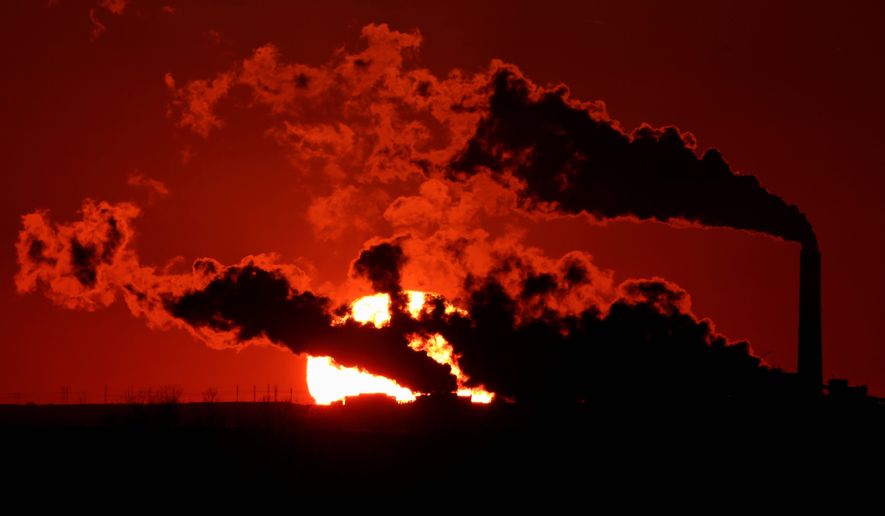As President Obama forges ahead in his fight against climate change, a leading Harvard Law School scholar says a central piece of the president’s strategy is akin to “burning the Constitution” merely to advance an environmental agenda.
In testimony before the House Energy and Commerce Committee on Tuesday, Harvard constitutional law professor Laurence H. Tribe said the Environmental Protection Agency’s plan to limit greenhouse gas emissions from U.S. power plants is built on a shaky legal foundation. The proposal, Mr. Tribe argues, far exceeds EPA’s authority under federal law and strikes a blow to the 10th Amendment by essentially making states subservient to Washington on energy and environmental matters.
Mr. Tribe’s testimony — with which other legal scholars strongly disagreed during Tuesday’s hearing — comes about a month before the D.C. Circuit Court of Appeals will hear arguments in a case that challenges EPA’s so-called “Clean Power Plan,” which would limit pollution from both new and existing power plants and is designed to reduce coal use across the country.
Critics long have argued the proposal, which will be finalized this summer, would cost thousands of jobs and drive up electricity prices for consumers. But Mr. Tribe and others believe there are deeper problems with the looming regulations.
“EPA’s proposal raises grave constitutional questions, exceeds EPA’s statutory authority and violates the Clean Air Act,” said Mr. Tribe, who has argued before the Supreme Court dozens of times and represented Al Gore in the case that ultimately decided the 2000 presidential election.
“EPA is attempting an unconstitutional trifecta — usurping the prerogatives of the states, the Congress and the federal courts all at once,” he continued. “Burning the Constitution of the United States … cannot be a part of our national energy policy.”
The White House, many Democrats in Congress and environmental activists believe the EPA plan is a necessary component in a larger effort to stop climate change. EPA officials also have said they intend to finalize the proposal before Mr. Obama leaves office in 2017, making it much more difficult for the next president to unwind the regulations.
But there are a host of legal questions underneath the EPA’s proposal, and many scholars expect it ultimately will end up before the Supreme Court.
One of the most important questions deals with the agency claiming new authority under the federal Clean Air Act to limit emissions from power plants even though it already restricts “hazardous air pollutants” under a separate portion of the law.
The D.C. court will hear arguments on that question next month in a case brought by Ohio-based Murray Energy. But given that the Murray lawsuit centers on a draft version of the rule and not the final regulations, it’s possible the court could toss the case.
Critics also say the EPA is weakening states’ rights by requiring them to pursue unrealistic and ultimately unattainable greenhouse gas emissions rates. The EPA claims it is giving states a great deal of flexibility in figuring out how to meet emissions standards, but opponents of the plan say the standards themselves cannot be met and the supposed flexibility is an illusion.
If states do not devise their own plans to lower emissions, the federal government would impose its own rules.
The requirements almost surely would require states to take steps beyond simply limiting emissions, such as using more renewable power. Opponents say the EPA does not have the authority to regulate “beyond the fence” of the power-generation facilities.
Some Democrats on Tuesday seemed unphased by the potential legal pitfalls.
“You can get constitutional lawyers and professors to say anything on both sides,” said Rep. Frank Pallone Jr., New Jersey Democrat.
Indeed, other legal scholars who testified at Tuesday’s hearing shrugged off Mr. Tribe’s warnings and said the EPA merely is taking the next step in the effort to protect the air Americans breathe.
“The Clean Power Plan does not give rise to any constitutional problems,” Richard L. Revesz, a professor of law and director of the Institute for Policy Integrity at New York University School of Law, told the House panel.
• Ben Wolfgang can be reached at bwolfgang@washingtontimes.com.




Please read our comment policy before commenting.